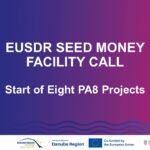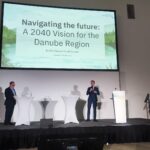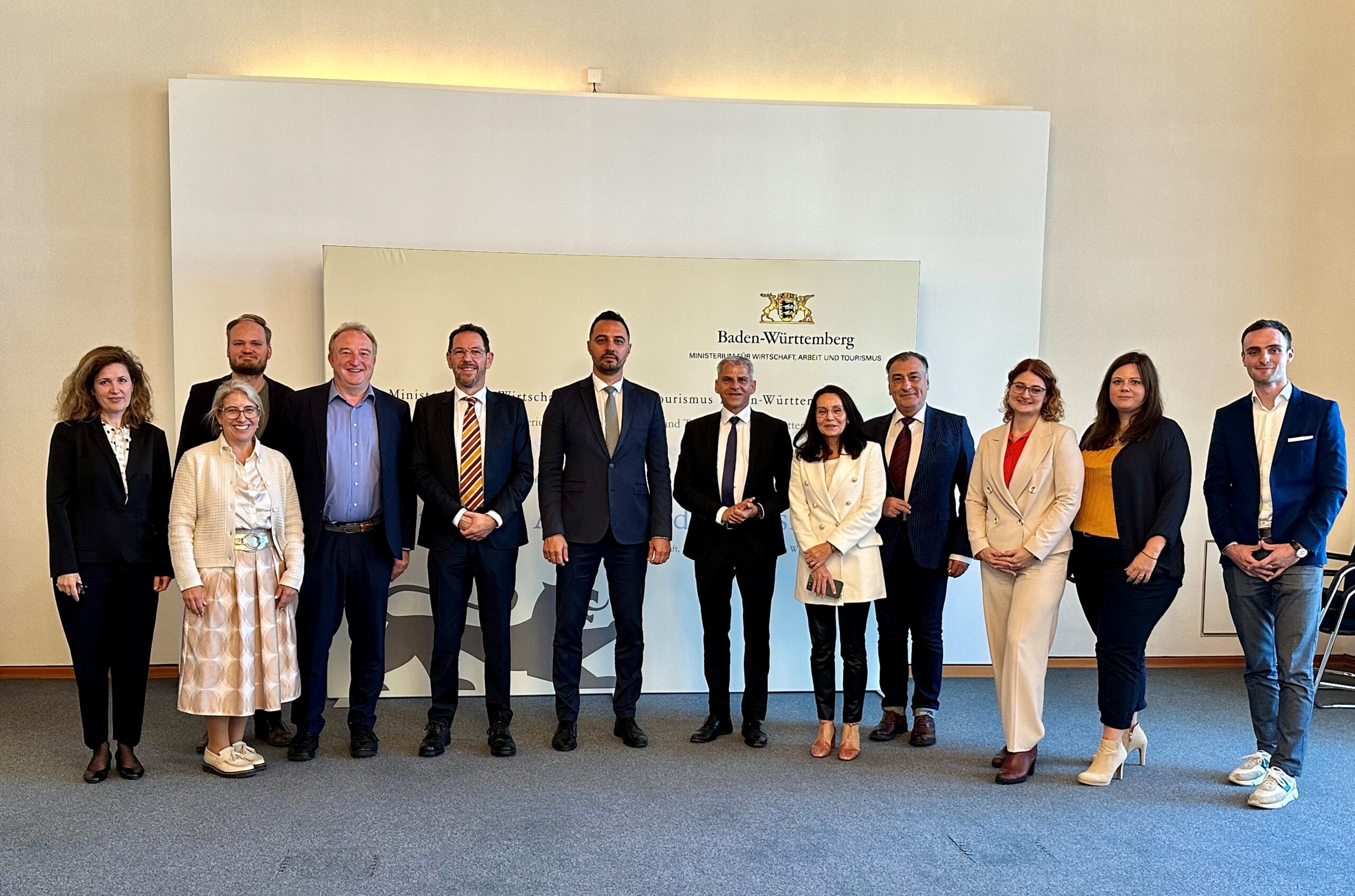An exchange between State Secretary Dr. Patrick Rapp and the Bulgarian Member of Parliament and former Minister of Economy Bogdan Bogdanov and a delegation of experts from Baden-Württemberg took place today at the Baden-Württemberg Ministry of Economic Affairs as part of the EU Danube Region Strategy, Priority Area 8.
The fact-finding trip to Baden-Württemberg took place as part of the “Biomass utilization in Vidin (Bulgaria)” project funded by the Baden-Württemberg State Ministry from the EUSDR project fund.
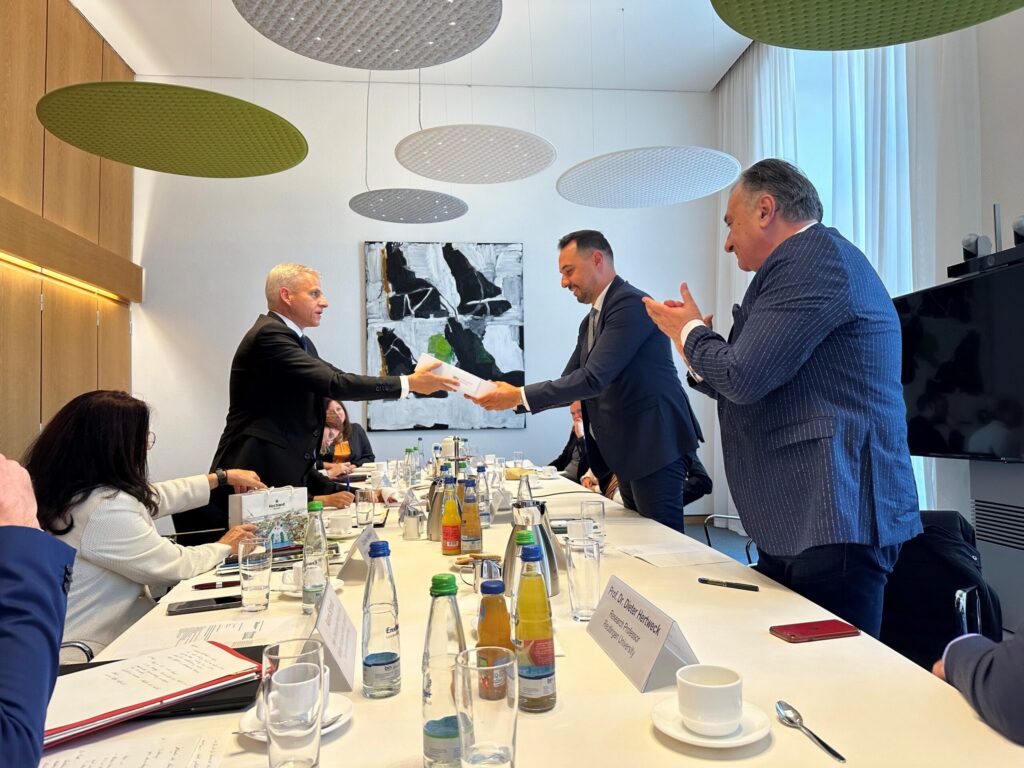
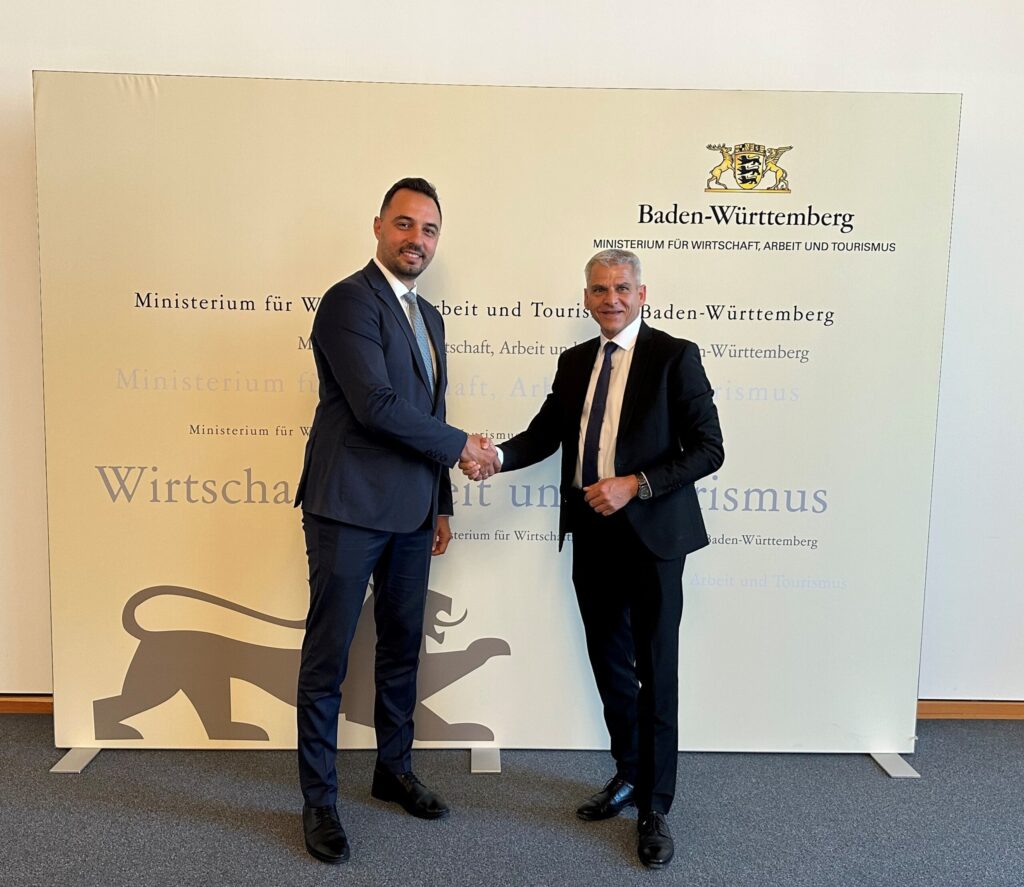
The topics from an economic policy perspective were the promotion of cooperation and knowledge exchange between SMEs, universities and the public sector in areas of expertise in the Danube region through the planned cooperation between Reutlingen University and the districts of Vidin and Pleven, the municipality of Vidin and various SMEs (agricultural companies, Bulgarian company Energea, EvA MiscEnergy, other Baden-Württemberg member companies of the Plattform Umwelttechnik e.V.).
Improvement of business support to strengthen the capacity of SMEs for cooperation and trade in Bulgaria through the preparation of a study on the use of agricultural biomass for the production of electricity, heat and products.
Improving the competitiveness of rural areas and the agricultural sector in particular by demonstrating how additional value can be created in the Vidin area:
The sale of biomass by farmers creates an additional source of income for them, the generation of renewable electricity and heat makes the region less dependent on energy imports and the funds for the energy remain in the region. The project also aims to determine whether further products can be created from biomass.
Improving the framework conditions for SMEs in areas that lack a competitive infrastructure. The project can stimulate structural change and outline a new value creation network. In addition, the framework conditions for SMEs would improve if the project results are implemented in the so-called “roll-out” and reliably cheap, regionally generated electricity and heat are available. The implementation of the project results can also create a so-called leverage effect, e.g. the construction of a bioenergy power plant creates orders and jobs in the region.
We assume that the project results will be transferable and scalable to other regions, so that other regions in the Danube region and beyond could also benefit from the project.
The project “Biomass utilization in Vidin (Bulgaria)” is also supported by Priority Area 2 Sustainable Energy, and during the development phase the two ministries of Baden-Württemberg, the Ministry of Economic Affairs, Labour and Tourism and the Ministry for the Environment, Climate Protection and the Energy Sector, worked together.
Photos: Ute Böhnisch


